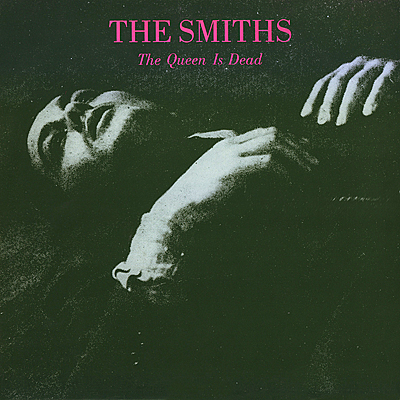
THERE always seem to be a certain degree of pressure placed on those who pledge themselves to music to cherish that which paved the way. It almost demands that certain records must be held up as sacred cows which can’t be desecrated by any disparaging comments and merit automatic inclusion into your list of top albums lest you be chastised for your inferior taste.
It can be seen in any number of genres or cliques, heard in any conversation about music that you may catch soundbites from in a pub and has led records which aged badly due to rock star pomposity or poor production to continue to carry the same aura that they may have once held upon release.
With new generations of music fans discovering punk, indie and alternative through recommendations or the magic of the internet allowing certain bands to be elevated to an almost mythical status, it’s unfortunate that the concept of album’s being judged purely on previously held reputation doesn’t appear to be going anywhere.
Whilst this phenomenon may continue to burden those that look to expand their musical horizons only to be met with the knowledge that their favourite albums have already been assigned to them, this is most certainly not the case with The Queen Is Dead; The Smiths’ definitive statement and an album which remains as important today as it was upon its storied release 30 years ago.
Unlike many of the records that are held up as the finest of an era or timeframe, The Smiths didn’t strike gold with their very first attempt. While their first two albums were excellent collections of riveting and witty indie pop; dripping with barbs of cynicism and a distinctive style which was driven by the fiercely creative guitar playing of the now legendary Johnny Marr, it is their penultimate studio outing which is the most prolific of the bunch and has done more to cement their legacy than any other could.
Beginning with a spirited and sarcastically included verse of ‘Take Me Back To Dear Old Blighty’ from the 1962 film ‘The L-shaped Room’ before the listener’s full attention is all at once grasped by Mike Joyce’s thunderous drumming, the record’s opening track instantly makes its intent clear as Morrissey begins to systematically decimate the monarchy with a seemingly endless procession of wittily relayed insights.
Speaking of its futility within modern Britain through the metaphor of Queen Elizabeth’s death, the divisive yet undeniably eloquent frontman looks to tear down the holier-than-thou portrayal of the royal family which is so endlessly put forth by the tabloid media by enquiring if Prince Charles ever desires “To appear on the front of the Daily Mail, dressed in your Mother’s bridal veil?”
Powered by one of the most potent riffs that Marr has ever laid down, he continues to take aim at what is viewed as the preordained fabric of British existence by decrying our reliance on ‘the pub that saps your body’ and the church. More unhinged than anything else in their catalogue, it is a bold and unblinking statement which only begins to demonstrate the album’s untarnished importance in our popular culture.
An album which thoroughly casts off the ludicrous perception of The Smiths as nothing more than dour doom-mongers that are focused solely on wallowing in misery, the jaunty and mischevious ‘Frankly Mr Shankly’ enabled Morrissey to take aim at Rough Trade’s Geoff Travis through the voice of any disgruntled employee. Proclaiming his desires to go down in ‘musical history’ and dissatisfaction with the money that he’s been given for his services, the former of the two lines demonstrates the unwavering self-belief which he had in his talents as a songwriter.
The track’s companion on the album is certainly the rockabilly stomp of ‘Vicar In A Tutu’, an outing which allows him to comment on the constricting nature of social responsibilities and the power which the expectations of our peers have to impinge upon our own happiness. Similarly to ‘Frankly Mr Shankly’, those who fail to scratch below the surface would perhaps see it as vapid or deceptively happy and remain entirely unaware of the important message which ultimately resides at its core.
That’s not to say that the more downtrodden style which is often accredited to The Smiths doesn’t have a strong presence on the album, with the combination of ‘I Know It’s Over’ and ‘Never Had No One Ever’ appealing to the eternal pessimist which can be found within all of us at our lowest points.
Elsewhere, the persisting basslines and ambitious guitar arpeggios of ‘Cemetary Gates’ create the perfect canvas for one of Morrissey’s crowning achievements as a lyricist, with all the verbosity and skill which he’d made clear on previous works coming to fruition in the form of an unconventional and extremely charming love letter to both literature and the very idea of romance itself.
A track which remains a staple of Marr’s live sets to this very day, ‘Bigmouth Strikes Again’ is the band simply firing on all cylinders and a shining example of not only the guitarist’s unmatched ingenuity but the formidable rhythm section that was Andy Rourke and Mike Joyce.
Just when you think that the record has perhaps reached its apex, the glorious opening strains of ‘The Boy With The Thorn In His Side’ come to envelope your ears and carry away your senses. Referred to by Morrissey himself as his favourite Smiths track, it’s an autobiographical affair which sees the troubled vocalist seek understanding and adoration from his peers.
Seen as the gateway to The Smiths for many thanks to its inclusion in films such as ‘500 Days Of Summer’, ‘There Is A Light That Never Goes Out’ remains one of the single greatest love songs of the past 30 years and is made all the more special for its fusion of morbid imagery and beautiful sincerity.
Rounding off with the heavenly slice of pioneering indie that is ‘Some Girls Are Bigger Than Others’, there’s very few albums that have been crafted in the past 30 years that can even stand alongside The Queen Is Dead in terms of continued importance to today’s artists which look to redefine music in their own image or in sheer, unfettered originality.
An album which more than deserves its reverence among those young music lovers that scour the vinyl racks in music stores in search of a coveted copy, the album sees Morrissey, Marr, Joyce and Rourke at their most harmonious and serves as a record which stands above all of their others as a perfect summation of what makes them such an important band to millions of people all over the globe to this very day.








